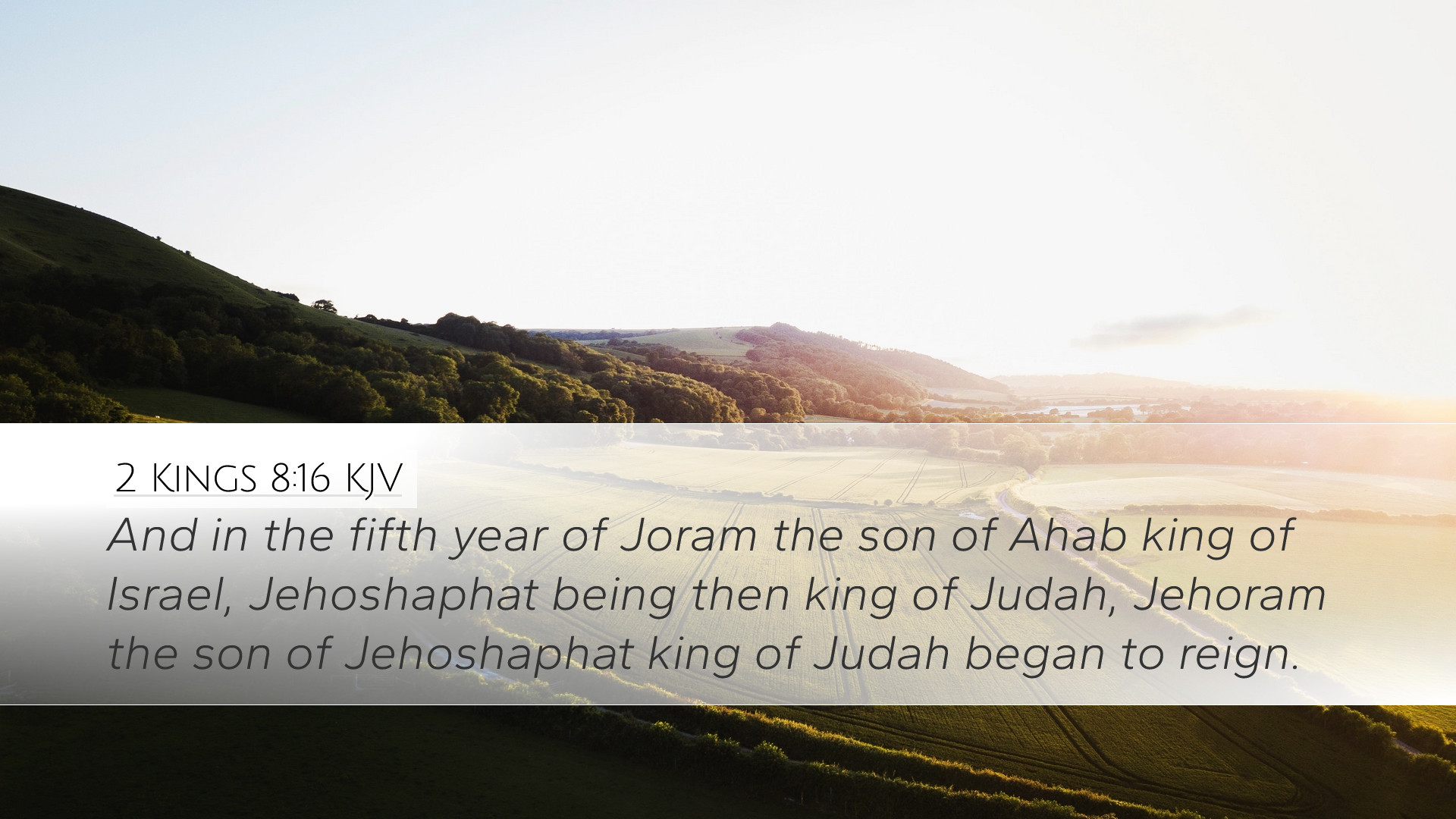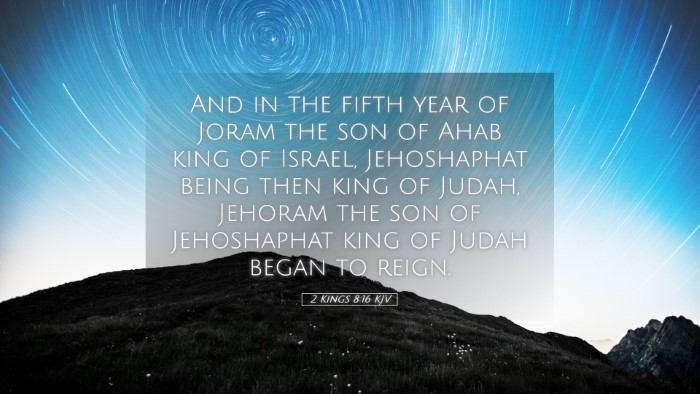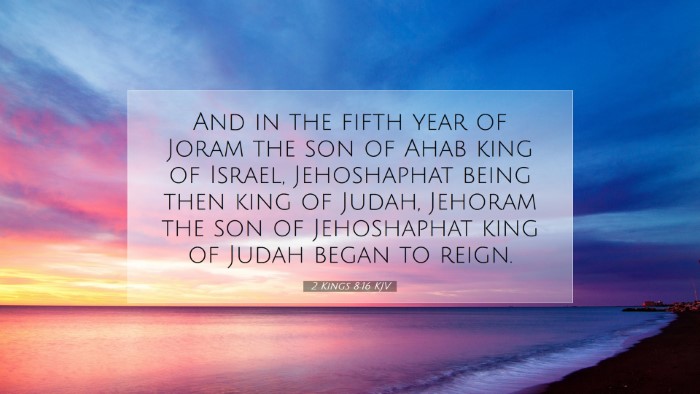Commentary on 2 Kings 8:16
Verse Text: “In the fifth year of Joram the son of Ahab king of Israel, Jehoshaphat being then king of Judah, Jehoram the son of Jehoshaphat king of Judah began to reign.”
Introduction
This verse serves as a crucial chronological marker in the historical narrative of the kings of Judah and Israel. It introduces the reign of Jehoram, the son of Jehoshaphat, amidst the complexities of a divided monarchy, and presents a unique insight into the interplay of leadership and divine sovereignty in Israel's history.
Contextual Background
To understand the events of 2 Kings 8:16, it is essential to place it within the larger historical context concerning the kings of both Judah and Israel. Joram (or Jehoram) of Israel is the son of Ahab, a king renowned for his idolatry and conflict with the prophets of Yahweh. Jehoshaphat, his counterpart in Judah, is known for his attempts to reform and maintain the worship of Yahweh in a time of widespread apostasy.
Insights from Matthew Henry
Henry emphasizes the significance of the synchronization of reigns between the two kingdoms. He notes that Jehoram's reign marks a transition, characterized by the influence of his father and the prevailing political tensions between the houses of Ahab and David.
- Divine Providence: Henry posits that God's hand is evident in the flow of history, guiding each monarch's decisions and actions.
- Moral Decay: He highlights that the time of Jehoram’s reign represents a period of moral decline, which was the result of the preceding kings' choices.
- Prophetic Context: The role of prophetic figures during this transitional period is underscored, suggesting that their presence signifies divine guidance amidst political turmoil.
Insights from Adam Clarke
Clarke delves deeply into the implications of Jehoram’s rise to power. He examines the associations Jehoram had with the northern kingdom through his mother, who was a daughter of Ahab, indicating a potential for syncretism in worship.
- Family Ties: Clarke argues that such familial connections often compromised the purity of worship, leading to the acceptance of Baal worship in Judah.
- Comparative Analysis: He encourages a comparison between Jehoram’s character and that of his predecessors, pinpointing how their failures collectively shaped Jehoram's governance.
- Judah's Political Alliances: Clarke reflects on the political landscape, where Judah’s alliances often mirrored the moral and spiritual decay seen in Israel, raising questions about the nature of leadership during such times.
Insights from Albert Barnes
Barnes' commentary draws attention to the unfolding dynastic relationships and their theological implications. He stresses that Jehoram’s ascent reflects a continuation of Joram’s royal lineage in a tumultuous time for Israel.
- Incompatibility of Leadership: Barnes argues that the lack of spiritual leadership during this period necessitated reform, and Jehoram's affinity with Israel’s spiritually corrupt rulers hindered such reforms.
- Judgment and Mercy: He emphasizes that while kings exhibit failure, God’s mercy intricately weaves through the narrative, showcasing opportunities for restoration.
- National Consequences: The relationship between the two kingdoms serves as an illustration of the broader national consequences of leadership choices, influencing not just the ruling class but the populace’s spiritual condition.
Theological Reflections
The reign of Jehoram offers profound theological reflections relevant for pastors and scholars today. Here are some aspects to consider deeply:
- Divine Sovereignty: The narrative continues to affirm that despite human agency and political friction, God's purposes prevail in both judgment and mercy.
- Leadership’s Impact: Pastoral leaders may reflect on how their choices shape congregations and communities, drawing a parallel to the moral state of Judah during Jehoram's reign.
- Historical Lessons: Understanding the consequences of compromised worship can serve as a cautionary tale for contemporary church leadership regarding the influence of culture and politics on faith.
Conclusion
2 Kings 8:16 intricately weaves together themes of leadership, fidelity, and the enduring impact of one's reign in the sacred narrative. Through insights provided by esteemed commentators such as Matthew Henry, Adam Clarke, and Albert Barnes, readers are invited to ponder the spiritual ramifications of this passage as it relates to the ongoing struggle for faithfulness amid worldly pressures.


